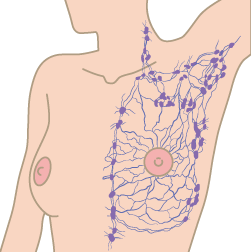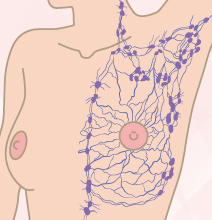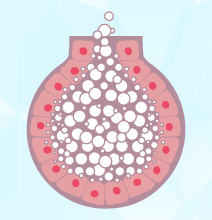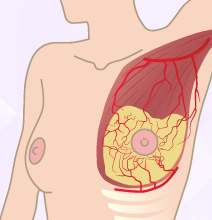Lymph nodes

In breast cancer, the lymphatic system has a crucial role in the evolution and spreading of the disease.
The lymphatic system is a vital part of our protection against disease: lymphatic vessels collect excessive fluid from tissues all over the body, filter and cleanse it of microorganisms in the lymph nodes (where cells of the immune system are located), to then return it to the blood.
By moving fluids from tissues into the blood, however, the network of lymphatic vessels provides the breast malignant cells with an entrance door to the body. The cells enter the lymphatic vessels and travel in the lymph to reach other organs.
Thus, in order to understand the disease evolution to control its spread, during surgery to remove tumors doctors also do biopsies to nearby lymph nodes.
The function of lymph nodes is to filter waste particles and eliminate bacteria from the lymph released from breast tissues.
The closest lymph nodes to the breast are in the armpit (axilla) and under the sternum/breast-bone (these are called internal mammary nodules).
If the biopsy detects malignant cells, all nearby lymph nodes and vessels will be surgically removed to prevent the disease from spreading.
The first tested nodes, supposedly those first draining the cancer, are for that reason called sentinel nodes.




